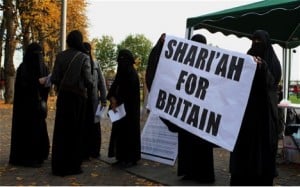Iktimal Hage-Ali, 24 is a Lebanese-Australian woman whose life reads like an episode of E! True Hollywood Story.

Hage-Ali, a former member of the government‘s Muslim Community Reference Group was arrested for conspiring to sell drugs on Nov. 22, 2006, eight days before she was named New South Wales’ Young Australian of the Year award. She relinquished this title after pictures of her sipping champagne surfaced on the Internet and reports about her cocaine habit were made public. She was released without charge hours later, after she admitted to buying cocaine for her own personal use.
In November 2006, police began tapping her phone calls and taping her conversations with her childhood friend and cocaine supplier, Mohammed “Bruce” Fahda. They had reason to believe she was selling the drugs because in the conversations she told Fahda the cocaine was for a friend, a lie she says she told him because didn’t want him to know she was snorting coke during the holy month of Ramadan. Hage-Ali claims she was wrongly arrested and detained (on suspicion of being a drug supplier) and is suing the government for damages of up to $750,000.
Hage-Ali, who was released without charge the day of her arrest, told The Daily Telegraph she’s “not ashamed of the fact that I have used cocaine” because she “still did a good job” at work.
Although I have problems with the lead in The Sydney Herald story, I’m siding with the media on this one. The “elephant in the room” is that Hagel-Ali is Muslim. The details of her case become even juicier when instances, such as her disgust with former fellow advisory panel member Sheik Taj el-Din al Hilaly, are inserted. It becomes very hard not to tell Hagel-Ali’s story without the “Muslim woman gone bad” angle.
I work in government and I know what it’s like to have to schmooze and network and effectively kiss ass in order to be accepted in the community. But Hage-Ali, who literally represents the Muslim community in government, took it too far. She was acting reckless and it came back to bite her. She was a Muslim affairs advisor, and whether she likes it or not, that means she represents Muslims. That means you think twice before sipping champagne at a highly publicized event. Al Hilaly (who has issues of his own) had these harsh words to offer:
“A so-called Muslim leader drinks champagne and takes illegal substances – and this sends a terrible message to young people. And the government sees her as a role model. The Muslim community never did.”
It would be nice if Hage-Ali was at liberty to say her actions don’t represent all Muslims, but by default of her former title, they do. Having a bright, unveiled, attractive (shit helps!) Muslim woman in the public sphere is great PR for Islam and Muslim women because it defies the image of the depressed woman in the black chador, of the come-hither niqab eyes, of the lifeless woman underneath the burqa, of the apron, and the woman in the private sphere.
Hage-Ali could have taken a stand against the characterization of Muslim women by drawing attention to her own position in a positive manner. She could have said her commendable achievements were a result of her faith; after all, one does not become a Muslim affairs adviser without knowing a thing or two about Muslims. Instead, she projected the image of a Lindsey Lohan-type wild child, and gave the Muslim community the impression that she doesn’t care what they think of her.











